CHICANO CONFIDENTIALTo Ph.D. or not to Ph.D.?My advice today to a Latinan Student asking: “Should I Earn a Ph.D. in One of the Social and Behavioral Sciences?” By Sonny Boy Arias Some 40 plus years ago I earned a Ph.D. in sociology (with an emphasis in social psychology) at the University of California, San Diego. Now, I wonder why? Not for myself but for younger generations of Chicanos/as [herein: Chicanos] and others I’ve met and known across my years since earning the doctorate. While preparing my notes for a keynote speech to be delivered at an annual alumni conference at a major university I was asked to reflect on the question, “What would I advise today’s students about whether or not to earn a doctorate?” The essay that follows is an offshoot of the keynote prepared for a general audience. Later, I was also asked to deliver a keynote at a Hispanic serving institution (HSI) and I decided to add a Latino twist to the question. I have to tell you, it goes without saying that I had many reflections about the Latino Ph.D. graduate experience while writing the keynote for the general audience. How could I not? The Great Advice to Chicano Students Seeking a Ph.D. Degree When a Chicano student asks me that question, I ask myself: “Does this student really have what it takes to earn a Ph.D. and go on to become a university professor or career researcher? Does this student have the stamina to survive the many hoops of fire that will form them into an intellectual?” Over the years, my kneejerk response has grown more and more perplexing, both from practical and emotional perspectives. I want my response to be as honest as possible while at the same time taking into account personal life situations. I say to these students “Why do you ask?” and the most common response is most often “Because I have a passion for the subject matter.” I know what they mean, as this has been my response to others for many years, still is. What I really mean to say (but never do) is “Why on earth in this day and age would you want to earn a Ph.D. in any other fields outside of STEM (science, technology, engineering and mathematics) where for the time being the jobs are plentiful and in high demand?” One way to vet one’s ability for earning a Ph.D. is through their performance in a graduate school preparation program. It is an absolute must that young Chicanos majoring in the social and behavioral sciences thinking about attending graduate school, participate in a preparation and funding advisement program, one of the most comprehensive being the nationally recognized Ronald E. McNair, popularly known as the “McNair Scholars Program.” At the same time, students enroll into a unit-based senior level set of courses through the Undergraduate Research Opportunities Center (UROC) that addresses a variety of topics that will prepare them for graduate studies. In so doing, the experience transforms students, provides insight into the life of a earning a Ph.D., and helps them develop a focused mindset. In short, once realized, the program places students at an advantage in preparing their applications to Ph.D. programs, Eligibility includes a strong academic record and that they be “either a first-generation and low-income college student or belong to a group traditionally underrepresented in higher education.” A key part of the program is that students are matched with faculty mentors and as a result often publish in peer-reviewed journals prior to graduation. What Chicanos majoring in the social sciences need to know is that while this program has a reputation for primarily recruiting students from the hard sciences, social and behavioral science students are supported in the same fashion; the problem is that the program is not widely recognized in this way. In short, this is a wonderful opportunity for social science undergraduates. Deep down inside my Self (in a social psychological sense), my truest response is directly related to my passion. I love ideas and I am keenly aware that the process of earning a Ph.D. causes a permanent cognitive shift in one’s paradigm for looking at everyday life; it literally transforms you and everything you interpret through an intellectual lens. Simply stated, due to the manner in which Chicanos experience the world, and as well as the way we socially construct our reality in everyday life, during the process of achieving the Ph.D., Chicanos develop a different consciousness, in this case an intellectual consciousness to be sure. During the transformation to becoming an intellectual your values and beliefs about most everything you know are transformed, held in abeyance in a new way, hence, you can’t help but also develop a Chicano consciousness. Franz Fanon recognized this duality and called it a “dual consciousness.” My knowledge about the transformation of the Chicano consciousness as well as the process of earning a Ph.D. from the Chicano perspective comes from direct observations made while serving on dozens of hiring committees, not only in all the fields found in the social and behavioral sciences, but also in other fields (e.g., mathematics, life and natural sciences). And, in cases when there are not enough tenured faculty in a given academic area to assess faculty portfolios for hiring, retention, tenure and/or promotion I have been called to review faculty portfolios in my capacity as a full tenured professor. I have also done the same as a university administrator. I would like to share the following general observations about the nature of university faculty hires in the social and behavioral sciences, and to some extent in the humanities. These statements are general, but at the same time represent what I continue to observe across academic fields, especially when it comes to providing advice to prospective Chicano Ph.D.s.
Now let’s look at some important social factors found in the Academy and in American Society. These three social factors seem to appear across all disciplines and institutions of higher education:
These three social factors (general as they are) are realities that cannot be taken lightly, that is, if one wants to be gainfully employed, so let’s take a closer look at what they mean to Chicanos. A Ph.D. from a reputable institution is important as a recognized credential for a lot of reasons I am not prepared to discuss in this essay. Back in the day the majority of those Chicanos that were breaking the glass ceiling in academe came from just a handful of reputable universities like the University of Texas, Austin or from New Mexico Highlands University in Las Vegas (New Mexico) and the University of New Mexico, located in Albuquerque, New Mexico. Today, Chicanos are found earning doctorate degrees at any number of major universities. Earning a Ph.D. from a reputable institution seems straight forward enough but the fact that more and more millennial Chicanos are earning degrees through one hundred percent online instruction such as the University of Phoenix and others causes search committees to rethink assumptions. For instance, statistically speaking, per capita, more Chicanos earn Ph.D.’s from Walden University (a fully accredited institution) than any other university in the U.S. I’ve also known and assisted students earning Ph.D.’s in online programs at the University of Phoenix and the Arizona State University and I would match what they learned against other reputable institutions. The problem is the lingering stigma against online education by traditionally minded universities of which there are many. It wasn’t long ago that there was a great deal of stigma towards online degrees, and online Ph.D.’s were certainly not even considered possible. Today, when you earn a Ph.D. from say the Arizona State University’s online graduate degree program, it causes faculty search committees some pause about the quality of the program, plus, it is not self-evident that the individual in question was in an online Ph.D. program. Said differently, there is no distinguishable difference in the degree you receive and hang on the wall. Whereas in the recent past, many Chicanos felt they should earn doctorates from wherever possible, I return to the idea that at least in the foreseeable future, if you want to compete for a position at a major university and earn tenure, Chicanos should stick with traditional graduate programs at reputable universities. The second social factor is the development of one’s political acumen. Just as the philosopher Aristotle encourages us to become political animals, he promotes the idea because politically aware people learn important bits of information on a daily basis that can increase one’s life chances. Simply stated, “Hang around the watering hole,” establish rapport with others, gain trust and create long-lasting relationships. Historically, Chicanos don’t have this sort of political acumen outside of Chicano studies or ethnic studies programs, and so this has been an obstacle, but it’s importance should not be taken lightly. Academic departments are often in search of potential future heads/chairs of their departments, thus, presenting yourself as one who may fill this vision will work in your favor, Chicano or not. Few people want to take this position. Mobility is a factor that doesn’t really strike new Ph.D.’s, until it does. One becomes so submersed in one’s studies, it’s difficult to get your head above water to see the practical realities. One of my advisors used to say, “You have to go where the gold is!” implying that if you want to increase your chances of landing a faculty position, you can do so by applying to positions in other states or countries. Bilingual and bicultural Ph.D.s are sought after and that is a good thing. Think realistically about your job prospects. Many Ph.D. students hope to find a tenure-track position at a good college or research university after graduating (although others do pursue satisfying careers outside of academia). The reality is that academic positions are increasingly difficult to come by. Many Ph.D.s have to settle for temporary or non-tenure-track teaching positions, which can be just as demanding as full-time work but without the salary. Be prepared to follow jobs to colleges on the other side of the country or to adjust your career expectations. With so many good Ph.D.s on the job market, many make altruistic moves by self-sacrificing their dreams of serving at a top 20 university and taking positions at lesser institutions. Many times Ph.D.s take teaching positions at community colleges and find that although their workload is greater than at a state college they are paid considerably more, and the reality is that it won’t be long before community colleges start requiring faculty to possess a Ph.D. If you are like me, I made an altruistic career move (self-sacrificing), for the welfare of my family. I moved from a well-known top-20 Ph.D. granting university, to a lower-level (non-Ph.D. granting) university. I made this move in order to move my family to a highly desirable historic and culturally rich area with a university on the ocean and a high percentage of Latino students to include an agricultural area that stirred my sociological imagination for endless community-based projects that include service-learning opportunities. If we view these social factors as measureable trends, we make other observations, like:
Trends or not, the Ph.D. is not for everyone due to a myriad of factors, some of which I have enumerated in this essay. Traditionally, the Ph.D. degree was viewed and valued as high level training in performing research in one’s chosen scholarly field. Said differently, going into research as an aspiration for some may not be realistic, but there are programs that offer alternative kinds of Ph.D. opportunities. Of course if a student sees his or herself wishing to be a college or university professor, and has the skill set and capabilities to actually become one, than a Ph.D. is typically a pre-requisite at least for the foreseeable future. Bottom line – it depends. And, before addressing the question “Should I Earn a Ph.D.?” any further, let me offer a philosophical and highly important perspective, depending on the age and interests of the student. I suggest that students take off a year after graduation and perform some self-analysis while being employed and reflect on Socratic like questions: Who am I, really? Why am I here? How then should I live? Why I should enter a Ph.D. program A Ph.D. is perhaps the most important degree in the world. Ph.D. level research skills will help to improve your abilities to understand and solve problems, increase your confidence, make yourself a better communicator and gain skills that may lead to a better job, even in many fields apart from academics; plus, you learn to teach yourself (most anything) for the rest of your life. Working on a Ph.D. is an indication that you are taking ownership of your professional life and at the same time taking responsibility for the development of your academic career and life. It is more important for you than for the institution you work for or go to obtain the degree. The Ph.D. institution may not be the purpose of even the passion of your life; it is merely a vehicle in which we travel on one part of our life’s journey. What is most important, as Abraham Maslow has pointed out, is self-fulfillment. That is the most worthy goal of all. Money may be tight while you're studying, but this is one area where a Ph.D. really is worth the investment, especially in fields such as law, pharmaceutical sciences, biomedical sciences, and finance. Getting your doctorate will make you more likely to earn a higher salary over someone with only a master's degree.
Why I shouldn't enter a Ph.D. program?
What is your motive for getting a Ph.D.? Examine your true motivation for wanting to earn a Ph.D., and how the degree makes sense or not within your larger plan. Despite the obstacles, people stay in doctorate programs because they enjoy learning for learning's sake. They relish the opportunity to tackle intellectual problems and explore new areas of knowledge. For some there is the added appeal of taking time out from the traditional job market as you pursue what you love. But if it's your ambition to become a professor, you should be aware that the Ph.D. track is no guarantee of a life in academia. Can you live frugally? Getting a doctorate is intellectually rewarding. Unfortunately, it doesn't tend to be financially rewarding, at least not in the short term. Most Ph.D. students live on their earnings from teaching and research assistantships or other low-paying employment. So, your starving student days may not be behind you. Are you ready for the workload? Graduate courses are far more rigorous than those you took as an undergrad, and first-year Ph.D. students usually take around three classes. Many graduate students also serve as teaching assistants (TAs) and must learn how to juggle their needs along with their students’. Chicano students who serve as TAs soon find out that students of color will seek them out as mentors, role-models thus adding to their workload – this phenomenon will not change through the course of one’s career. And, of course, in the final years of the Ph.D. program, you'll mainly focus on writing the dissertation and preparing for oral exams. How do you handle pressure? Each year, some Ph.D. candidates do not meet the requirements of their graduate programs and are asked to leave. Others choose to leave because they are burnt-out, or their interests have changed. Some students who don't complete the Ph.D. leave with a master's degree; others leave with no degree at all. You should be prepared for these scenarios by making a back-up plan. Successful Ph.D. students thrive in a highly intellectual environment, are willing to work very hard with only a possible payoff, love their field of study, and don't mind forgoing impressive paychecks. If this sounds like you, forge ahead! The Art and Science and Benefits of Grant Writing If you really want to set yourself apart and if you want to generate data to write and publish about, write a grant. There is nothing like writing a grant and receiving funding for your ideas. One of the most intriguing thing to me is that most people will never write a grant, nor will they ever have the experience of being critically examined for ideas they propose. Go for it. Just like everything else, it takes a little practice. Start by reading the first 30 pages of Writing Grants for Dummies; it is a good and practical guide. It’s like my mama always says, “What are you asking for now, Sonny Boy? You should always be asking for something!” I always had innovative projects to propose to be sure, so I often sought out and established rapport with foundation representatives on designing fundable projects. I did the same with foundation representatives in private corporations often linking them to others performing public service. I caused wonderful interdisciplinary marriages and always brought attention to those involved. Así, pues, nunca debemos abandonar la esperanza aunque parece imposible de mantenerla. Diversify Your Skill Set and Bench Work: Remain Interesting to Others as Well as to Your Self I have a colleague who spent 38 years as an English professor at a major university; 25 years ago, he earned a Master’s degree in marriage and family counseling (MFC) and simultaneously built a psychotherapy practice. Interestingly to note is that he has a Ph.D. in English and a MFC degree in counseling and the title on his counseling practice reads, “Dr.” He retired as an English professor but has since kept his counseling practice. Interesting to note is that his practice is located directly across the street from a major university and ninety percent of his clients are young tenure-track professors with tremendous amounts of anxiety – now that’s interesting! Final Points
 Sonny Boy Arias is a stone-cold, very self-aware (in a social psychological sense) Chicano and a dedicated contributor to Somos en escrito via his column, Chicano Confidential. Copyright © Arts and Sciences World Press, 2019.
0 Comments
A Winding Road to the Doorstep |
Archives
June 2024
Categories
All
|
Donate and Make Literature Happen
is published by the Somos En Escrito Literary Foundation,
a 501 (c) (3) non-profit, tax-exempt corporation. EIN 81-3162209

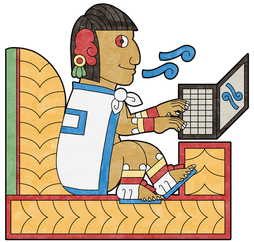
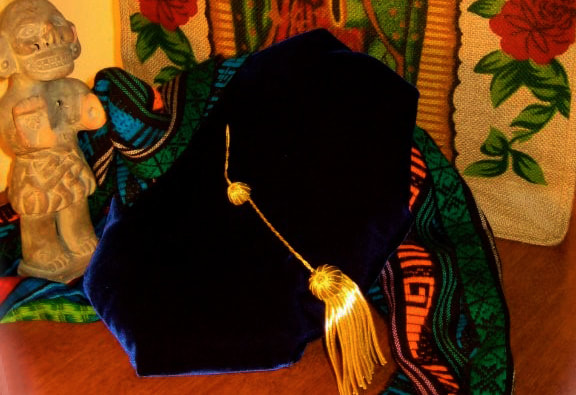
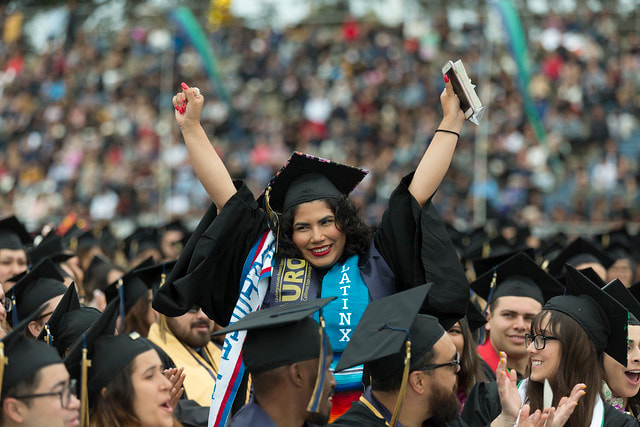


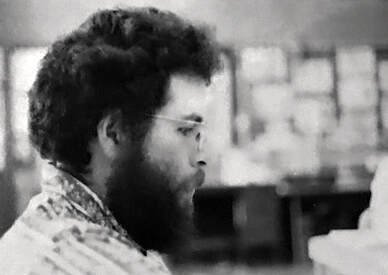
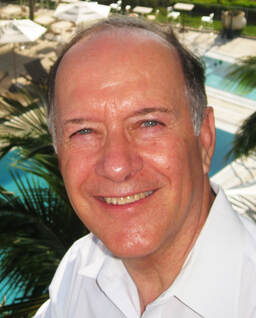
 RSS Feed
RSS Feed